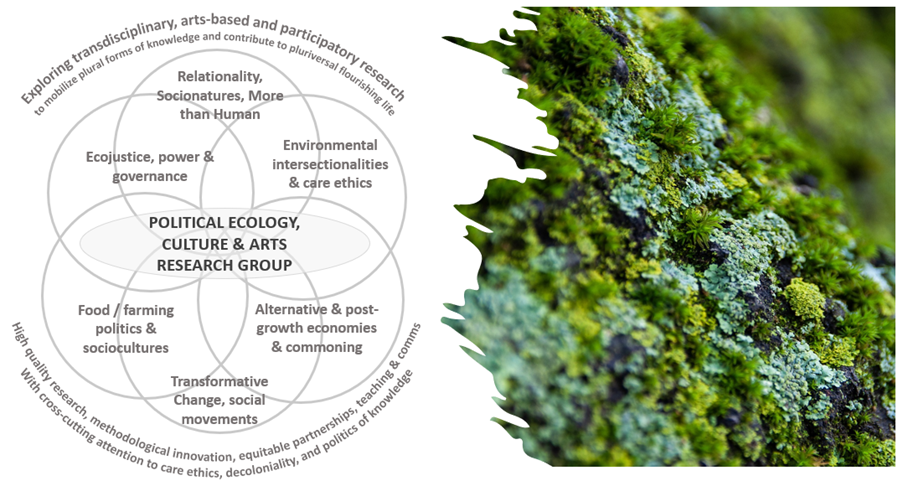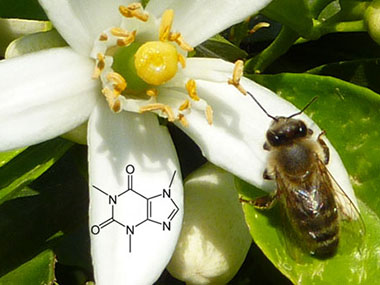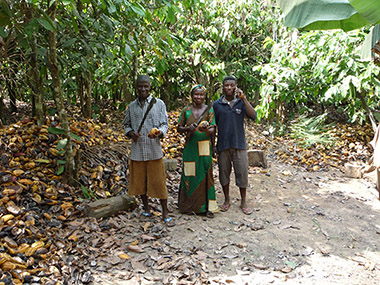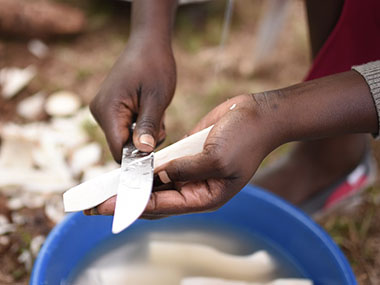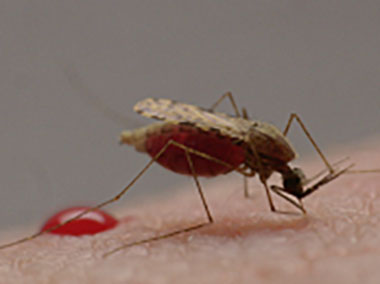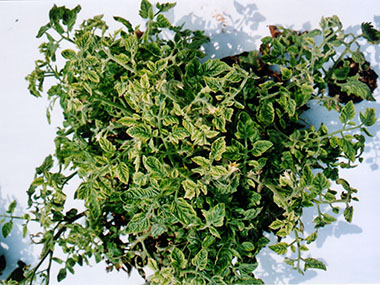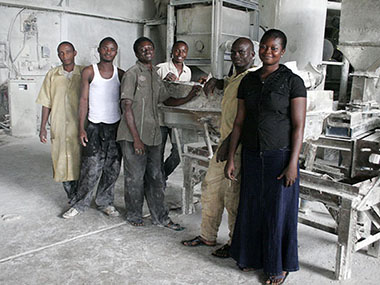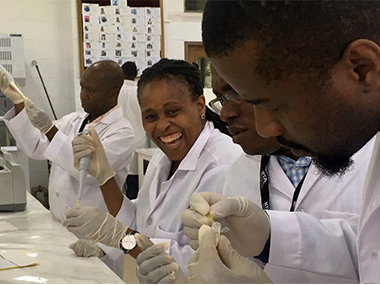Political Ecology, Culture and Arts
Creative Placemaking and Arts-Based Approaches. Regional Innovation Fund.
Scoping potential approaches on nature futures in Medway. Innovative dialogues using social learning and arts-based method on food futures and nature futures in Kent and the UK. Tanya Stathers and Valerie Nelson
‘Transformative Change for telecoupled agrofood systems for biodiversity and equity (TCforBE)’ project.
(EU Horizon, 2023-26). Funded by the EU Horizon Scheme, with Wageningen University, Netherlands, University of the Andes, Colombia, University of Dschang, Cameroon, the University of Kabianga, Kenya, IDDRI and CIRAD, France, and Hanken University, Finland. The project explores transformative pathways in food systems, moving beyond reform-oriented market-based mechanisms to explore more radical alternatives. Includes research on rural imaginaries, the more-than-human and emotional ecologies, consumption and biodiversity, rights of nature and transformative change, social movements, collective action and commoning for transformative change, as well as facilitating learning cycles and dialogues in partner countries and in the EU. Valerie Nelson, Jeremy Haggar, Adrienne Martin.
Social learning for people-centred land governance:
Social learning for LandCollaborative, a Global Community of Practice involving social learning cycles and co-production of learning outputs for the LandCollaborative (International Land Coalition, Mekong Delta Rural Land Governance Programme and WeltHunger Hilfe (WHH) LandforLife programme) on engaging, influencing and resisting the private sector in relation to agricultural investments and people-centred land governance (2021). Engaged 27 organisations in 13 countries working on land rights exploring direct engagement and advocacy strategies and limitations, strengthening capacities and informing the stakeholder platform strategies. Julian Quan, Valerie Nelson, Richard Lamboll, Lora Forsythe, Kaysara Khatun.
Partnerships for Forests Programme:
Evaluative learning, development of an evaluative transformative change framework, case studies on the Integrated Bukit Tigapuluh Landscape Programme, Sumatra (2019 and 2021) and studies on non-timber forest products and landscape governance innovations in Colombia and Brazil (2021). Valerie Nelson, Adrienne Martin.
Critical analysis and assessment of fair trade and sustainability market-based mechanisms and responsible business approaches.
Multiple studies on fair and ethical trade schemes, sustainability standards and certification impacts, social impacts of corporate codes of practice, sector transformation and sustainable landscape approaches, responsible business and ethical trade schemes, trade and global value chains social and economic upgrading innovations, and sustainable finance for diverse donors and research councils (FCDO, ILO, Fairtrade International, Fairtrade Foundation, Max Havelaar, ISEAL, Better Cotton Initiative, Rainforest Alliance, Dutch government). This work led the way asking questions about the effectiveness, impact, politics and governance of private standards and alternative, solidarity trade schemes and initiatives. It generated extensive evidence on impacts, research on the politics and ethics of value chain sustainability governance, and highlighted the inherent limitations and problems associated with market-based mechanisms for sustainability and transformative change. Valerie Nelson, Adrienne Martin, Ravinder Kumar. Recent studies on human rights and environmental due diligence by Valerie Nelson with Olga Martin Ortega, and rights of Nature, Stacy Banwell.
Politics and governance implications of private standards initiatives in Kenyan agri-food chains (2008-2011)
With the Universities of Leeds and Nairobi (ESRC-DFID). This research explored actor struggles over value chain sustainability governance and the emerging role of private actors in shaping narratives and practices. Looking beyond the vertical, the research explored the embedded nature of global value chains and the power inequalities infused in such agrofood chains, the contingent nature of smallholder and worker agency and participation, and the governmentality of sustainability standards and codes. The control-oriented nature of ethical governance was identified as well as areas of resistance and alternative economy narratives. Valerie Nelson, Adrienne Martin in collaboration with University of Leeds, Anne Tallontire.
Transdisciplinarity and participatory learning approaches in sustainable agriculture and agroecology
Over several decades including pioneering work on participatory video to support community enquiry, communication and advocacy on livelihoods and the environment in Malawi (1996-98, DFID funded), Farms of the Future project involving facilitation of farmer and agriculture stakeholder learning journeys on climate adaptation in Ghana, Burkina Faso and Tanzania (CCAFS, 2011-13), National Learning Alliances using multi-stakeholder social learning cycles on sustainable agriculture in Tanzania, Malawi, Zambia, Ghana and Ethiopia (DFID SAIRLA programme), and participatory farming learning including video documentation in evaluative learning on FAO Strengthening Climate Resilience Programme (EC Global Climate Change Alliance, Malawi, 2015-19). Recent study for Agrinatura on Agroecology and Value Chains with FIBL. Richard Lamboll, Valerie Nelson, Adrienne Martin.
Studies on gender, intersectionality and climate change
e.g. Empowerment of drylands women and environmental resilience (UNDP), on gender and climate (Oxfam/DFID, 2002; UNDP-Viet Nam, 2010), generations, gender, climate and social protection (UNICEF, 2010), and work supporting African Climate Fellows programme with a focus on gender and intersectionality. Valerie Nelson.
Advisory and esteem work
- Defra Nature Futures Framework Advisory Group (23-24). Valerie Nelson.
- United Nations Environment Programme (UNEP) GEO 7 Lead Author (2023 – 26), Chapter on Impacts, focusing on Sustainable Development Goals, Representative in the Indigenous and Local Knowledge Taskforce. Valerie Nelson
- Global advisory group of the International Land Coalition. NRI co-representative in ILC global advisory group, (2021 – ongoing). Valerie Nelson.
- IPBES ‘Transformative Change Assessment of Inter-Governmental Science Policy Platform on Biodiversity and Ecosystem Services’ (IPBES) (2022-24). Lead author in Chapter 4. ILK dialogue author representative. Valerie Nelson.
- Inter-Governmental Science Policy Platform on Biodiversity and Ecosystem Services – Scoping Study on Business and Biodiversity. ILK dialogue author representative. Valerie Nelson
- IPBES ‘Methodological Assessment on incorporating multiple values of nature and nature’s contributions to people for just and sustainable futures.’ Chapter 5. Inter-Governmental Science Policy Platform on Biodiversity and Ecosystem Services – Contributing Author. Valerie Nelson
Recent conferences and presentations
- Development Studies Association Panels on ‘Relationality and Socionatures’ - 2023.
- Development Studies Association Panel on ‘Exploring Relational, Political Ecology, Indigenous and Arts-based perspectives on Socionature Justice’ (DSA, 2024).
PhDs and teaching
- Lachlan Kenneally: PhD on ‘Relational and political ecology perspectives on urban food and commoning in Bristol’.
- Riley Hickman: PhD on ‘Soil(ed) Relations: Synergies and Struggles in Soil Relations and Politics’ in collaboration with Simon Wilcox, Rothamstead.
- Niall Readfern: PhD on ‘Niall Readfern, PhD on Power and Perspective: Investigating interactions between telecoupled agrofood systems and plural landscape meanings in biodiversity rich forest landscapes in Kenya.’
- Insights used to inform teaching on the MSc on Transformative Change for Sustainable Development offered by UoG, especially the module on Regenerative Politics, Economies and Societies.
Research Group Lead
- Valerie Nelson is a Professor of Sustainability and Political Ecology. She has an anthropological and rural environmental policy academic background and a PhD on the systemic constraints of responsible business and regenerative alternatives. She has 30+ years of experience in development and environment studies, with a particular focus on food, agriculture, social justice and the environment. She has current interests in relational and political ecology perspectives, and on specific topics such as alternative, diverse and post-growth economies, human-nature relations, social movements and action research, gender and environmental intersectionalities, and transformative change.
This research group is concerned with the ongoing and intensifying damage to ecologies and societies, and questions of justice and sustainability.
Mobilizing and traversing diverse disciplines including political ecology, anthropology, environmental sociology, human geography and the arts, we seek to advance specific perspectives on relationality, (de)coloniality and eco-justice.
We aim to contribute new thinking and teaching on contemporary and evolving research themes, working in equitable partnerships, guided by care ethics to contribute to the amplification and generation of knowledge and change processes for pluriversal, flourishing life.
We are currently working on the following inter-related and evolving research themes relating to diverse ecologies (terrestrial, marine, coastal, urban etc)
- Relationality, Socionatures & the more than human
- Ecojustice, Power, & Governance
- Transformative Change and social movements
- Food & farming politics and socio-cultures
- Alternative & post growth economies & commoning
- Environmental intersectionalities & care ethics
With cross-cutting attentiveness to care ethics, decoloniality and the politics of knowledge.


